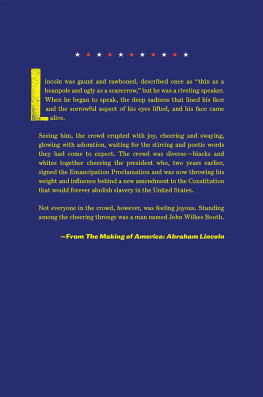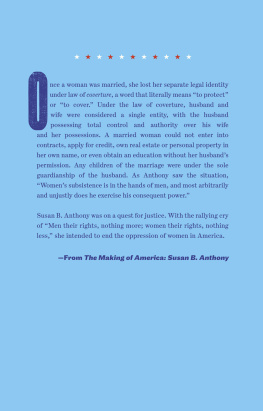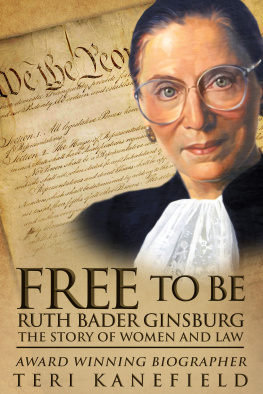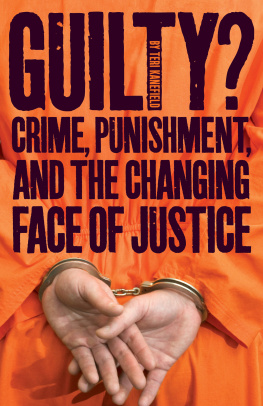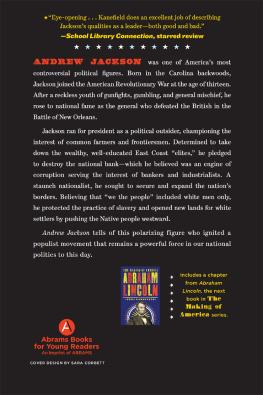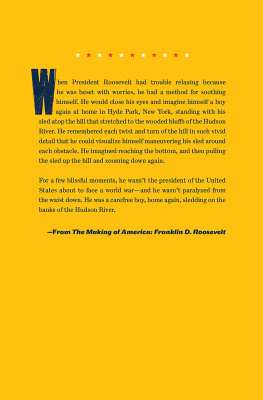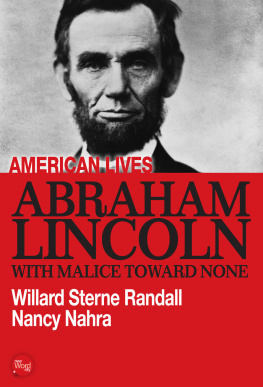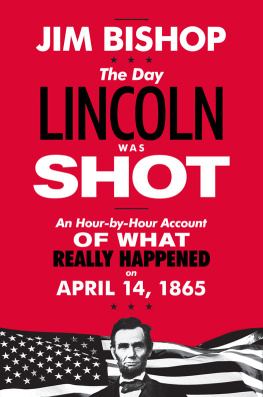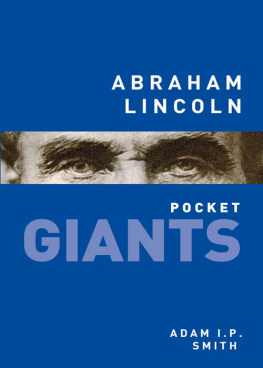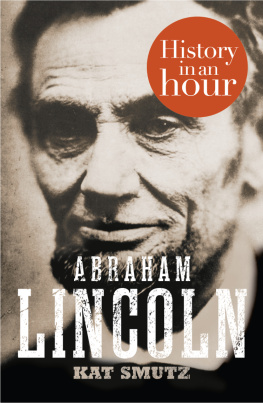PRAISE FOR
THE MAKING OF AMERICA
ALEXANDER HAMILTON
The strength of the book is the generous use of Hamiltons own words... A solid introduction to a charismatic founding father.
Kirkus Reviews
Thoroughly researched and cited, this book is accessibly written and full of valuable information... Hamiltons intelligence, ceaseless drive, and penchant for speaking his mind come across, giving readers a clear view of Hamiltons character and his role in creating America.
Booklist
Kanefield is a capable nonfiction writer, organizing an eloquent review of Hamiltons life while balancing the perspectives of his adversaries and skeptics... the story is told easily, making a founding father accessible to young readers the way Lin-Manuel Miranda has done on Broadway.
Voice of Youth Advocates (VOYA)
There is properly no history, only biography.
Ralph Waldo Emerson

The Making of America series traces the constitutional history of the United States through overlapping biographies of American men and women. The debates that raged when our nation was founded have been argued ever since: How should the Constitution be interpreted? What is the meaning, and where are the limits, of personal liberty? What is the proper role of the federal government? Who should be included in we the people? Each biography in the series tells the story of an American leader who helped shape the United States of today.
Abraham Lincoln, lithograph by J. H. Buffords Sons, 1865



All images used in this book are public domain.
Cataloging-in-Publication Data has been applied for and may be obtained from the Library of Congress.
ISBN 978-1-4197-3159-4
eISBN 978-1-68335-360-7
Text copyright 2018 Teri Kanefield
Book design by Sara Corbett
Published in 2018 by Abrams Books for Young Readers, an imprint of ABRAMS. All rights reserved. No portion of this book may be reproduced, stored in a retrieval system, or transmitted in any form or by any means, mechanical, electronic, photocopying, recording, or otherwise, without written permission from the publisher.
Abrams Books for Young Readers are available at special discounts when purchased in quantity for premiums and promotions as well as fundraising or educational use. Special editions can also be created to specification. For details, contact specialsales@abramsbooks.com or the address below.
Abrams and The Making of America are registered trademarks of Harry N. Abrams, Inc.

ABRAMS The Art of Books
195 Broadway, New York, NY 10007
abramsbooks.com

Lithograph, by J.H. Buffond Sons, 1865 (Library of Congress)
PROLOGUE
Now, by God, Ill Put Him Through.
On April 11, 1865, a crowd gathered in front of the White House, calling for President Abraham Lincoln to give a speech. For two days the nation had been rocked by the news that Confederate general Robert E. Lee had surrendered to Union general Ulysses S. Grant. Everyone understood this meant that the Civil War was at last ending. The day before, Lincoln dodged requests for a speech, but this evening he heeded the call and stepped to the window. At his side was his twelve-year-old son, Tad. In Lincolns hand was a piece of paperwhich was unusual. He rarely read from a prepared speech.
Lincoln was gaunt and rawboned, described once as thin as a beanpole and ugly as a scarecrow, but he was a riveting speaker. When he began to speak, the deep sadness that lined his face and the sorrowful aspect of his eyes lifted, and his face came alive.
Seeing him, the crowd erupted with joy, cheering and swaying, glowing with adoration, waiting for the stirring and poetic words they had come to expect. The crowd was diverseblacks and whites together cheering the president who, two years earlier, signed the Emancipation Proclamation and was now throwing his weight and influence behind a new amendment to the Constitution that would forever abolish slavery in the United States.
Not everyone in the crowd, however, was feeling joyous. Standing among the cheering throngs was a man named John Wilkes Booth. Booth, a well-known actor, had spent some of his youth in the South. He was a passionate supporter of the Confederacy and a strong believer that blacks belonged in slavery. Like former vice president John Calhoun, he believed that slavery was a positive good.
For Booth, elevating the status of blacks was an insult to white people and a step in the direction of destroying the white race. This country, Booth said once, was formed for the white, not for the black man. When he heard about General Lees surrender, he wrote in his diary, Our cause being almost lost, something decisive and great must be done. He hated Lincoln with a passion.
We meet this evening, Lincoln began, not in sorrow, but in gladness of heart. Then, instead of launching into the stirring victory speech many in the crowd expected, he spoke somberly on the difficult topic of how to bring the Southern states back into the Union.
Lincoln didnt come right out and say that blacks should be given the right to vote. Instead he dropped hints, saying, It is also unsatisfactory to some that the elective franchise is not given to the colored man. He talked about the proposed amendment to the Constitution that would ban slavery, and concluded by saying, In the present situation, as the phrase goes, it may be my duty to make some new announcement to the people of the South. I am considering, and shall not fail to act, when satisfied that action will be proper.
Booth caught Lincolns drift. He turned to his companion, a former Confederate soldier named Lewis Powell, and said, That means n citizenship. Now, by God, Ill put him through. That is the last speech he will ever make.
Four days later on the evening of April 15, 1865, Lincoln made plans to attend a play called Our American Cousin at Fords Theatre in Washington. John Wilkes Booth had plans of his own. Learning that Lincoln would be at the theater, he, too, intended to be therewith a fully loaded .44 caliber pistol.
1
A Boy on the Frontier
When first my father settled here, Twas then the frontier line: The panthers scream filled night with fear And bears preyed on the swine.
Abraham Lincoln
The man who John Wilkes Booth planned to kill was born on February 12, 1809, in a one-room log cabin on a small, isolated farm deep in the backwoods of Kentucky. The cabin had a dirt floor and windows without glass. The land was rocky and poora barren waste, save some patches of creek bottom. Abrahamwho disliked the nickname Abelived with his parents and his sister, Sarah, who was two years older. He would have had a younger brother as well, but Thomas died while still a baby.
Next page
